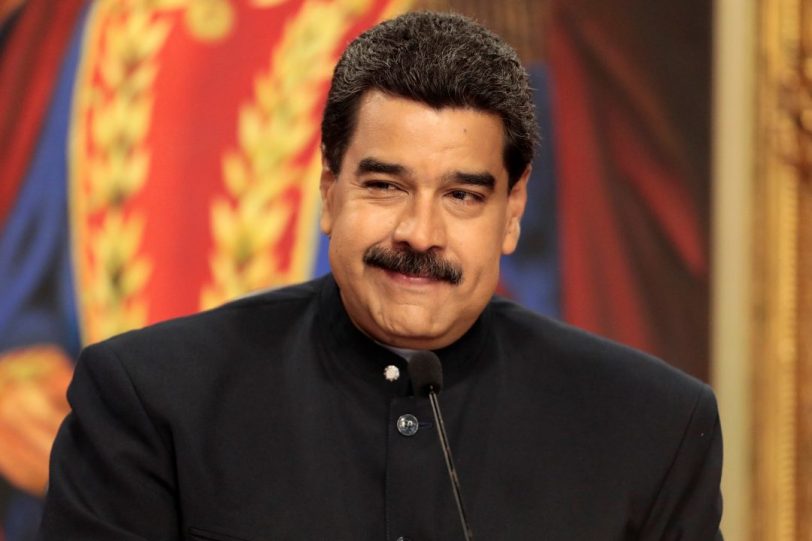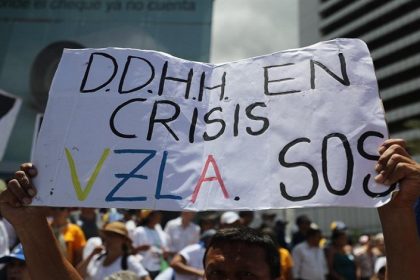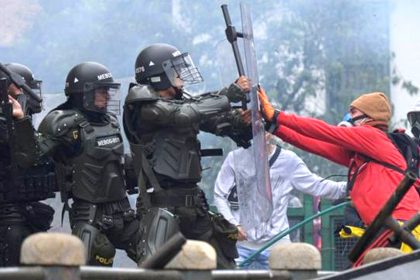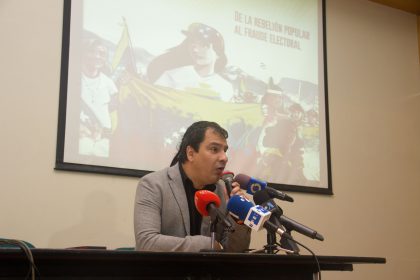(Caracas, 8 January 2019) Facing the Oath Agreement Act of Nicolás Maduro for a second presidential term (2019-2025), the NGO Programa Venezolano de Educación-Acción en Derechos Humanos (Provea) issues the following public statement to the national and international public opinion:
1) As a result of having become the representation of an electoral minority since the parliamentary elections of December 2015, Nicolás Maduro’s management took a series of arbitrary decisions that turned its government away from democracy with the intention of remaining in power irregularly. In May 2016, grouped in the Forum for Life, several human rights organisations, including PROVEA, described the approval of the State of Exception and Economic Emergency Decree as a breach of the constitutional order. These set out a regulation to justify and encourage the actions of the Public Powers on the sidelines of the Magna Carta, as well as increase the exclusion and persecution for political reasons. On the other hand, its policies have increased the economic crisis, generating greater hardship on the population and forcing millions of Venezuelans to forcibly leave the country.
2) On 14 May 2018, forty-three (43) civil society and human rights organisations warned that the elections of 20 May 2018, where a president would be elected for Venezuela for the period 2019-2025, would not be free nor valid, due to the serious breach of different guarantees for the exercise of the right to political participation through suffrage, including the performance of a National Electoral Council that did not guarantee transparency and independence as electoral arbitrator. On the following day, Provea went to the headquarters of the Supreme Court of Justice to lodge an appeal before the Electoral Chamber to challenge the convocation of the aforementioned electoral process, which was dismissed by a Magistrate co-opted by the government party. The alleged election of Nicolás Maduro for a second term was the result of an openly illegal and fraudulent electoral process.
3) Given the decisions taken from December 2015, which strengthened a dictatorial and more excluding government, Nicolás Maduro lost the legitimacy of performing in the exercise of his powers as President of the Republic. As of 10 January 2019, there will not be legitimacy of origin in what is intended to be a second presidential term.
4) The Constitution does not foresee the mechanisms to be followed before the installation of a de facto government as a result of electoral fraud. Any initiative to achieve the transition to democracy must promote the implementation of free and valid elections with guarantees for free political participation through the suffrage of all voters and organisations to restore in the short term the full validity of the 1999 Constitution. Thus, the National Assembly plays a fundamental role as the only public power legitimized by the population to lead such process.
5) The Constitution of the Bolivarian Republic of Venezuela must be the framework for action both for sectors that aspire to return to the rule of law and for the process of democratic re-institutionalisation of the country. The Magna Carta establishes in provision 138 that all usurped authority is ineffective and their acts are null.
6) We acknowledge and encourage all the efforts, both of the international organisations for the protection of human rights and of the international community to increase the diplomatic pressures that achieve the prompt restoration of the constitutional order and democracy itself in the country. We support individual sanctions on officials responsible for human rights violations, as well as the application of the different international mechanisms (Inter-American Democratic Charter, Ushuaia Protocol, among others) sovereignly agreed between the different countries, including Venezuela, to address the democratic rupture in any State of the region. However, as we have reiterated in other communications, we question any economic sanctions against the country that could aggravate the already precarious situation generated by the complex humanitarian emergency in health, food and poverty.
7) We call upon the countries of the region to maintain and generate all possible mechanisms to continue observing and accompanying the Venezuelan situation before any consequence derived from the installation of the de facto government that intends to settle in the country as of 10 January 2019. Likewise, we ask for timely and adequate response to asylum applications for political reasons and refugee statuses to Venezuelans who forcibly migrate from the country as a result of the complex humanitarian emergency and political persecution, in accordance with the international standards on migration.
8) We will reject any type of armed intervention to Venezuela as a mechanism to resolve the crisis. We advocate for actions contemplated in international regulations, based on the demand for peace and diplomatic mechanisms.
9) We invite all social and popular organisations of the region to denounce the absence of legitimacy of the de facto government that intends to establish itself in the country as of 10 January, usurping functions outside the 1999 Constitution and the Inter-American Democratic Charter. Likewise, we encourage them to show solidarity with the efforts of the sectors that promote the return of democracy to Venezuela.
10) We warn that the establishment of a de facto government does not free the officials in usurpation of functions from their responsibility in the exercise of power and the consequences of decisions that violate and affect human dignity. The Inter-American Commission on Human Rights (IACHR) considered illegitimate the government that replaced Manuel Zelaya in Honduras, establishing that “the democratic system is the main guarantee for the enforcement of human rights. Indeed, this report shows that the violations of human rights reported are a direct consequence of the breakdown of the constitutional order. For this reason, the Commission considers that the return to democratic institutionality in Honduras is necessary so that the conditions for the effective protection and fulfillment of the human rights of all the inhabitants of that country are provided.”
11) The response to the political and social crises is clear: the mobilisation and joint pressure of democratic civil society, Venezuelan social organisations, the National Assembly, international organisations for the protection of human rights, the international community and the population in its non-transferable exercise of sovereignty and duty of constitutional order restoration, with the firm intention of stopping the advancement of the de facto government.
12) Despite the obstacles and adversities, Provea and the rest of the Venezuelan human rights movement will continue their work in the country, documenting human rights violations and accompanying all victims, without any discrimination, in their seek for truth, justice and reparation.
Provea Press











